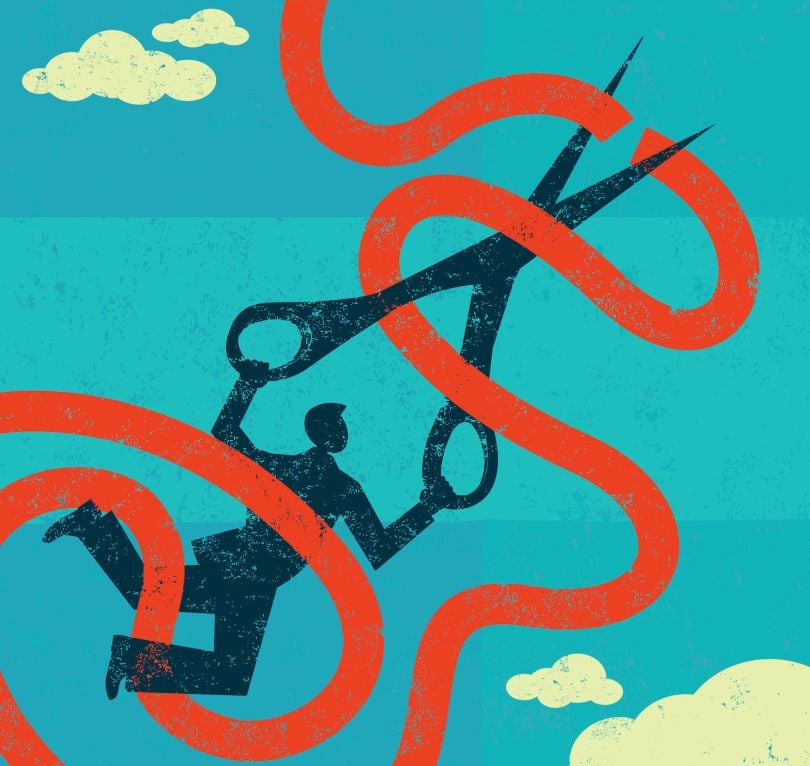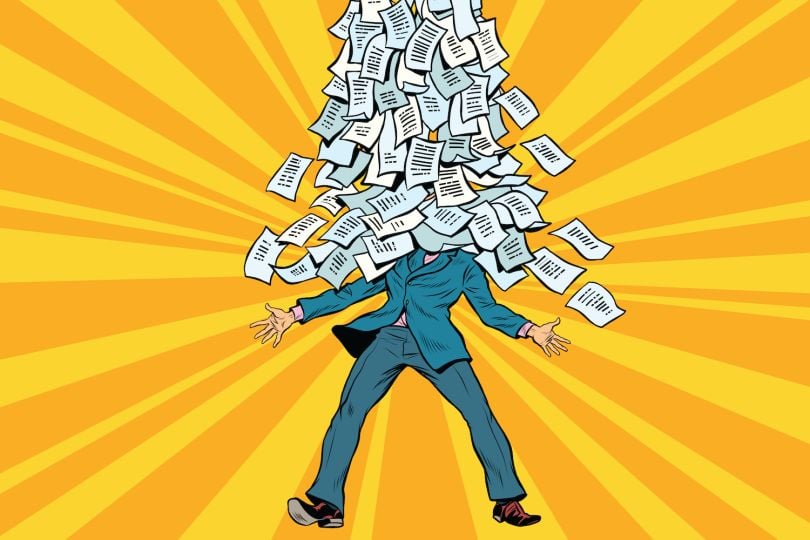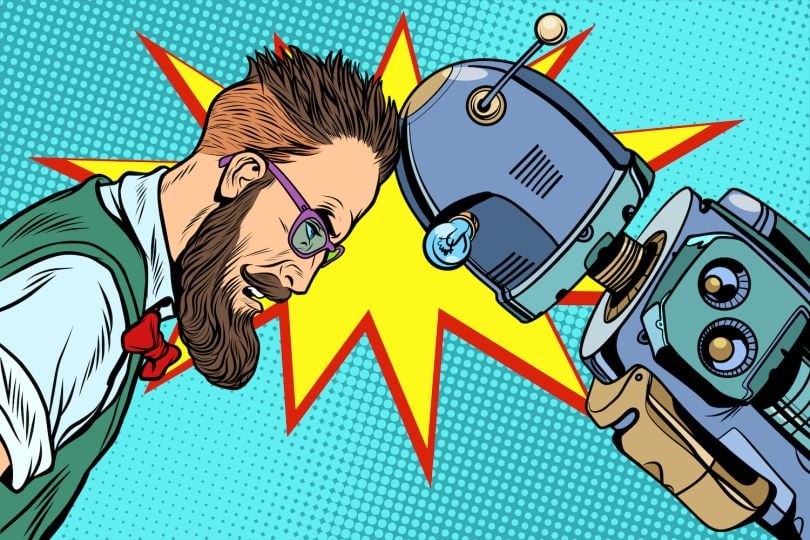Big companies can’t deny consumers their right to a refund or cancellation. But they can make those options so soul-crushing to pursue that consumers give up.
Bots, conveniently, don’t have souls to crush — a loophole that DoNotPay founder and CEO Joshua Browder is happy to exploit.
DoNotPay sprang from the slew of parking tickets Browder received when he was a teenager living in London. Instead of battling the city’s traffic court bureaucracy alone, he filed a Freedom of Information Act request for past parking tickets. He used the old documents to train a bot to recognize common reasons tickets were dismissed. Then, the bot could dispense personalized legal advice, and the program dubbed the world’s first “robot lawyer” was born.
It saved him money, and, after a Reddit user shared the website that housed Browder’s tool, it saved a lot of other people money too.
“My hope is that, one day, big companies will be scared to rip people off because they know they won’t get away with it.”
Four years later, Browder and a nine-member engineering team have built custom bots for 100 consumer rights areas — including airline refunds, cable cancellations and robocalls — using data from small claims cases and public arbitration settlements. For a $3 monthly subscription, the bots tell vexed consumers what to say in their communication with companies, and, if necessary, even help them sue.
In June, DoNotPay closed a $12 million fundraising round from investors including Coatue Management, Andreessen Horowitz and Peter Thiel’s Founders Fund, according to Crunchbase. Browder plans to hire more engineers and designers so the company can expand into new consumer areas and geographies, he told Built In.
Some of those areas will address needs springing from the COVID-19 pandemic and #BlackLivesMatter protest movement. Others will simply be new ways for consumers to reclaim money that otherwise would have landed in corporate coffers or the pockets of lawyers.
“My hope is that, one day, big companies will be scared to rip people off because they know they won’t get away with it,” Browder said. “But I think that will take some time to achieve.”

The Many Ways to Not Pay
When DoNotPay first hit the Reddit-sphere, its user base shot from 10 of Browder’s friends to 50,000 strangers virtually overnight, according to him.
“I basically stopped going to class and worked on it for the next four years,” he said.
He left Stanford University and accepted a Thiel Fellowship, which gives promising young founders $100,000 to drop out of school and build their own projects. For the first year, he worked alone, coding into the wee hours and chipping away at new bots. Then, in 2017, Andreessen Horowitz made a $1 million seed investment in DoNotPay, and things got, if not easy, a little less intense.
“Before, I had no resources at all, so I was literally staying up until 3:00 a.m., and I couldn’t do everything myself,” Browder said. “So the biggest feeling was just a sigh of relief. Like, OK, I don’t have to worry about what’s going to happen in the next 48 hours.”
He hired another programmer, then another, then another. As the team grew, they continued working as a group to tackle each new consumer area, one bot at a time.
“I basically stopped going to class and worked on it for the next four years.”
The copy on the DoNotPay homepage assures users the app will allow them to “fight corporations,” “beat bureaucracy” and “sue anyone.” And indeed, the website includes a “learning” section with long-form articles on how to sue large companies from DirectTV to Equifax to Uber — but users can file small claims against any person or organization in the iPhone or web app. The bot asks a few questions, then fills out all of the required paperwork, down to a script to use in the courtroom.
The company has also added features like burner credit cards for free trial sign-ups and robo-sales calls, as well as a natural language processing tool that checks terms of service agreements for shady loopholes or non-arbitration clauses.
The vast majority of DoNotPay customers live in the United States. (That may be because U.S. corporations have an easier time abusing consumer rights compared to other nations, Browder said.) With no official advertising spend, word-of-mouth marketing from happy users fueled the app’s steady climb.
Last July, one Twitter user wrote: “One of my fav new apps — already got $45 back in fees!”
In November, another quipped: “#DoNotPay is brilliant — and the only way I was willing to sign up to BritBox to have a look around!”
Then, a global pandemic happened, and demand for DoNotPay skyrocketed.
Browder said that, last year, perhaps a million people used DoNotPay to cancel gym memberships, which often requires sending a legal letter or showing up to talk to a manager. When gyms closed because of the coronavirus, use of that feature increased by 30 times, Browder told VentureBeat. The company’s tools for travel refunds, event refunds, price protection, bill extensions and fee negotiations also saw huge upticks.
But the app’s existing features weren’t its only source of growth. A surge in unemployment meant people needed help navigating the flooded application pipelines for benefits — DoNotPay introduced a tool that handled the whole process, down to waiting on hold with government offices.
And the company isn’t done. Browder mentioned three new features the team is putting together in light of the economic downturn and social unrest. First, DoNotPay will release a tool that helps protesters expunge arrest records and get out of fines for curfew violations. Second, there will be a feature helping users get compensation for or opt out of exploitative or excessive pandemic-related emails.
“And also just [emails] that are annoying,” Browder said.
Last, the company plans to come out with a bot that reassesses property values, so users can pay less in property taxes. What used to be a weeks-long ordeal of manually collecting information about properties similar to your own will happen with the click of a button.

Large Companies Wield New Automation, but Not Always to Help Customers
In some ways, companies’ dealings with disgruntled consumers are, as Browder puts it, “stuck in the 1960s.” Requiring customers to send a legal letter via registered mail to cancel a gym membership, for instance, feels a little medieval.
In other cases, though, companies are far ahead of the curve.
Take airlines, which use cutting-edge automation to optimize their fee structures.
“If you want to cancel your flight because of the coronavirus, some people get charged $100 to change their flight. Some people get charged $500,” Browder said. “What the AI is doing is determining how desperate you are and profiting off that desperation.”
“What the AI is doing is determining how desperate you are and profiting off that desperation.”
To be fair, ride-hailing apps use a similar model: If it’s pouring rain, the ride is more expensive. But Browder is tired of seeing companies apply smart technologies to their revenue strategies but not their customer service. Plenty of consumers have been on the receiving end of the runaround when companies hide behind long phone wait times, unmanned email addresses or shady refund practices.
With DoNotPay, that runaround doesn’t work, because the company has focused largely on disputes with legal precedent.
Unlike refund apps like Paribus and Earnie, DoNotPay relies on the legal rights of consumers rather than the goodwill of companies. If a company skirts the issue, they risk getting hit with a claim generated by DoNotPay AI and served by the consumer.
Right now, those claims are a drop in the bucket for big organizations, Browder said. But eventually, they could make a difference to companies’ bottom lines.
“They really don’t like us,” he added.

Could Automation Replace Lawyers?
Speaking of people who don’t like DoNotPay, let’s add lawyers to the list.
Not all lawyers, of course. The American Bar Association gave DoNotPay its 2020 Louis M. Brown Award, which honors projects that expand access to legal services for people with “modest incomes.” The law firm across the street from DoNotPay’s office invested in the startup. Stanford Law School invited Browder to speak on a panel about the emergence of legal chatbots.
But with the rise of legal automation, lawyers who largely file forms and send letters may find their incomes threatened. Why, Browder asked, should these attorneys earn 40 percent of their clients’ settlements for doing something the client could have done alone with the help of a bot?
“They’re making money off injustice,” he said. “Even if it’s 40 percent of injustice, it’s still injustice.”
“As a software engineer, I thought it was so obvious that the law is just society’s operating system.”
All in all, it’s similar to his airline argument: Legal firms leverage automation to conduct research, collect evidence and find new clients. Why not include access to legal bots among their services to help clients save time and money?
Most types of lawyering, after all, aren’t in danger of replacement by bots. Human rights or family law, for example, are likely too nuanced to see robot representation.
“We won’t see bots in the Supreme Court any time soon,” Browder said.
That doesn’t mean bots won’t make it into any courtroom. The Michigan Supreme Court changed its rules in May to allow litigants to bring their cell phones into court — that means DoNotPay users could read directly from the app during court appearances.
“One day, they will allow robots to argue on your behalf,” Browder tweeted in response to the Court’s announcement.
Like airlines and legal firms, in Browder’s view, the justice system must play by its own rules. If AI can be used to monitor for speed limit infractions, recognize faces and recommend sentences, it should be used to defend citizens and protect consumer rights as well. The trick, according to Browder, is placing the AI in the hands of the people it helps.
“I don’t have a legal background, but as a software engineer, I thought it was so obvious that the law is just society’s operating system,” he said. “Why do you have to pay a lawyer hundreds of dollars to copy and paste a few documents?”




